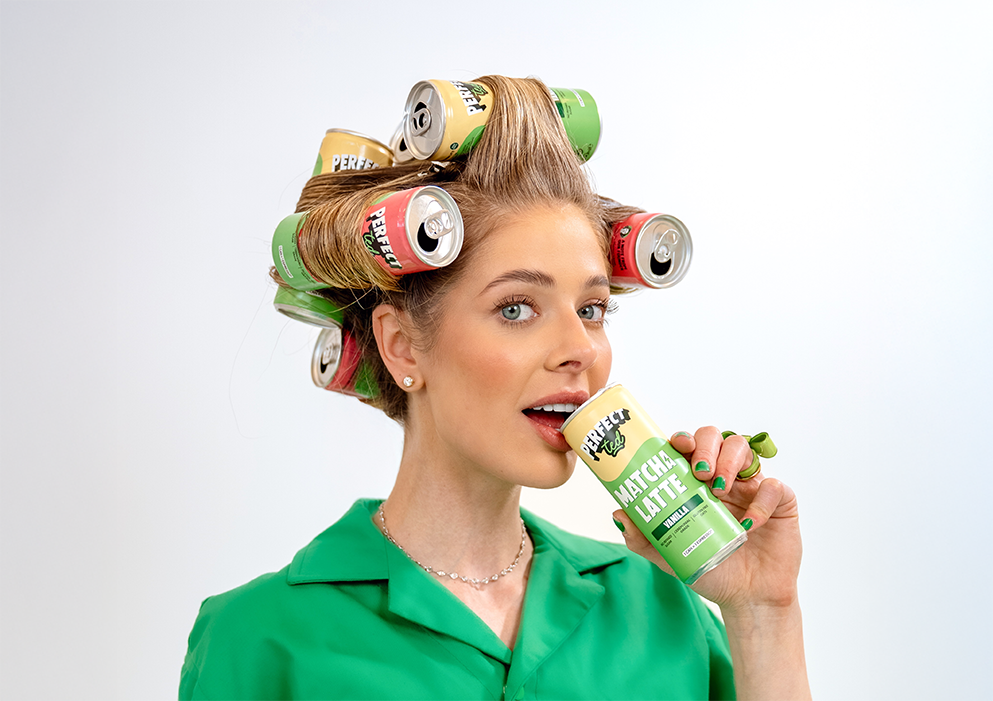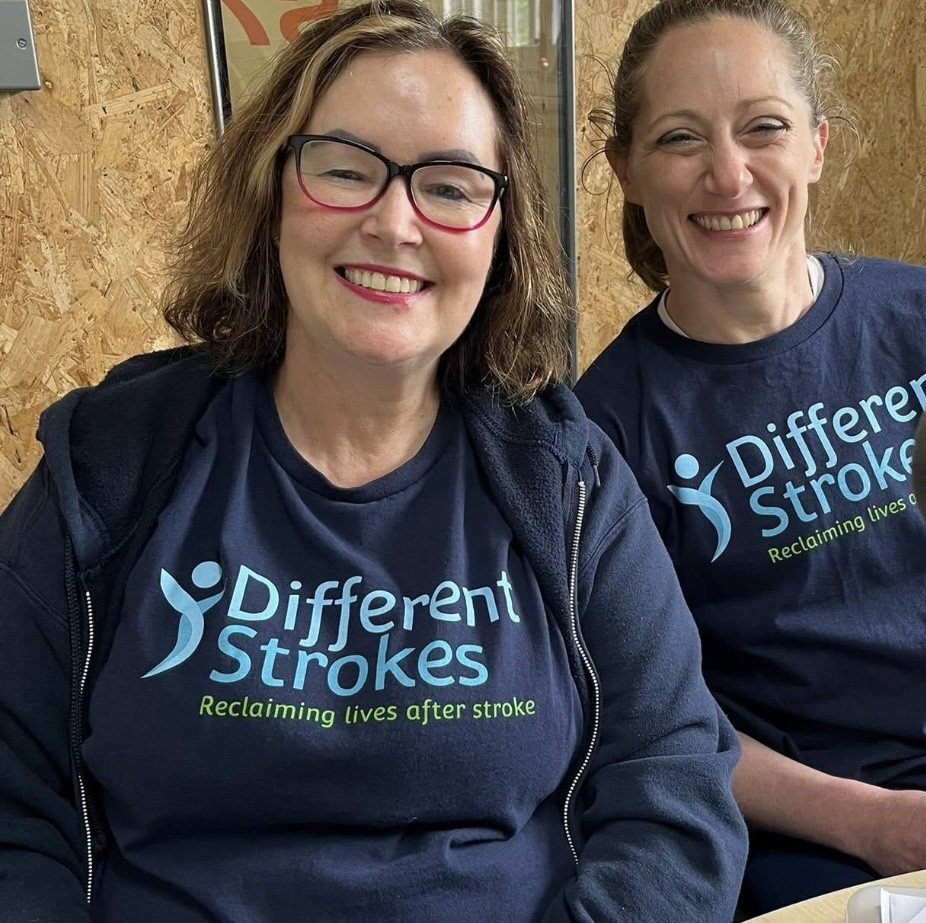I grew up in New York City in what you could call a childhood of contrasts. My grandparents gave me love, stability, and financial security. But at home, things were very different, my mum lived with severe bipolar disorder, my dad left when I was 13, and as an only child I had to navigate it all on my own. It was often lonely and isolating, and with ADHD and crippling anxiety layered on top of that, in a constant fight-or-flight environment, focus was always a struggle.
Achievement became my anchor. I set my sights on one goal, getting into an Ivy League university. That ambition gave me direction when everything else felt unstable, and the fight to get there taught me persistence and grit. My outlet was performance - singing, musicals, acting, which gave me a way to connect and tell stories. Looking back, that was my first training in communication and storytelling, skills I rely on every day as a founder.
The turning point came at university. I was living off Red Bulls and espressos, jittery, anxious, burnt out, until a friend introduced me to matcha. It was a revelation: calm energy, sharper focus, none of the chaos in my head. Later, when I moved to the UK, I was shocked at how hard it was to find good matcha. That’s when the idea for PerfectTed began to form.
Now, when I look back, what I mostly feel is gratitude, gratitude for the resilience I built, for the love my grandparents gave me, and for the empathy that growing up in chaos taught me. Watching someone you love battle their own mind makes you see beneath the surface, you realise everyone is carrying struggles you can’t always see. That’s why I share my story openly: because when we’re honest about mental health, people feel less alone.
And it’s why I started PerfectTed. I knew I wasn’t the only one who couldn’t tolerate traditional caffeine, and I wanted to create something that didn’t just solve my own problem but could help others too. Those experiences gave me the kind of strength you don’t get from textbooks, the courage to start something new, the empathy to make it meaningful, and the grit to keep going when people said matcha was “too niche.”
Matcha is one of the most nutrient-dense plants on the planet. It’s a clean source of natural caffeine, balanced by L-theanine, an amino acid that promotes calm focus, and packed with antioxidants like EGCG that support cellular health and metabolism.
The magic is in how these compounds work together: the caffeine gives you energy, the L-theanine smooths it out, and the result is smooth, sustained focus without the crash or jitters. You feel alert but centered, your brain switched on, but your nervous system steady.
Unlike regular tea, where you steep the leaves and throw them out, with matcha you consume the whole leaf. That means every sip delivers nutrients, amino acids, and antioxidants in their purest, most concentrated form. It’s functional energy that powers focus, performance, and long-term health, without the downsides of coffee or synthetic energy drinks.
That’s why matcha has been treasured for centuries. It originated in China and was brought to Japan by Buddhist monks in the 12th century, who drank it to sustain calm alertness through long hours of meditation. Later, samurai adopted it before battle for resilience and clarity. Over time, it became central to Japanese tea ceremonies, a ritual built on mindfulness, balance, and respect.
Today, matcha is finding new relevance for the same reasons it mattered then: it’s not just energy, it’s better energy, fuel for focus, clarity, and calm in a world that runs on overstimulation.
I first got into matcha in college, when I was basically running on five cups of coffee and endless Red Bulls a day, which, for someone with ADHD and anxiety, was a nightmare. My brain and body just couldn’t handle it.
Then a friend introduced me to matcha, and it genuinely changed my life. I felt focused, calm, and finally in control. I became such an evangelist that I converted all my friends, including my co-founders, Levi (now my husband) and Teddie (my uni best friend and now brother-in-law)!
When I moved to the UK in 2020, I assumed matcha would be easy to find, like back in the States. But it wasn’t. Cafés didn’t serve it, and the store options were either £50 ceremonial-grade or poor-quality powders dressed up as premium. There was nothing convenient, high-quality, or accessible.
So, slightly out of desperation, we built what we were looking for. Within 45 days of landing in the UK, the three of us launched PerfectTed.
Almost four years later, that scrappy start has grown into Europe’s leading matcha brand, and one of the largest importers of matcha globally.
PerfectTed is Europe’s leading matcha brand, and one of the largest importers of matcha globally. Our mission is simple: to make matcha’s healthier energy accessible to everyone.
At the heart of our range is our hero SKU: 100% pure, ceremonial-grade matcha. From there, we’ve built out energy drinks, ready-to-drink lattes, flavoured powders, Nespresso-compatible pods, and on-the-go sticks, available in Tesco, Sainsbury’s, and beyond. We also partner with some of the UK’s largest café chains, including Joe & The Juice and Black Sheep Coffee, to bring matcha to menus nationwide.
PerfectTed started when I moved to the UK and realised how hard it was to find good matcha. Back home in the US, it was everywhere. Here, it was either poor quality, bitter, or wildly overpriced. I wanted to build the brand I wished existed: fun, accessible, and rooted in quality.
What began as kitchen experiments with my co-founders Levi (my now-husband) and Teddie (my brother-in-law) quickly turned into the UK’s first matcha-powered energy drinks, clean, functional energy you can actually feel. Today, you’ll find PerfectTed everywhere from supermarket shelves to TikTok-famous café lattes.
What I love most is the community: neurodivergent customers who say it helps them focus, athletes who use it pre-workout, baristas turning it into social media moments. Watching this little green powder become a movement is surreal.
As for an “average day”? There isn’t one. Building a challenger brand is a full-body sprint, powered by matcha, of course. And I wouldn’t have it any other way.
We want to change how people think about energy. That’s the big mission.
Right now, “energy” usually means synthetic, hyper-masculine, or sugar-loaded. We’re building the opposite, energy that’s clean, calm, and genuinely functional. And we’re doing it with matcha because it actually works, and people feel the difference.
As for what’s next? More formats, more education, and more global reach. We’re already in 30,000+ stores across 50+ countries, but we’ve barely scratched the surface. The long-term goal is to make matcha as accessible as coffee, not a trend, but a habit. And to make PerfectTed the brand people trust to lead that shift.
Advice for start-ups?
Start with a Real Problem You Understand
Build something you’ve experienced firsthand. Your story is your unfair advantage, competitors can copy features, but not your journey.
Embrace Imperfect Action: Don’t wait for perfect. We made our first cans in a kitchen, pitched retailers with mock-ups, and hand-labelled our first orders. Perfection is a trap, the market teaches faster than planning ever will.
Get Clear on Your Commercial Reality: Decide early: lifestyle brand, niche play, or venture-scale company? That clarity guides every choice. Run your numbers often, dreams are free, but businesses cost money.
Focus Relentlessly: Most start-ups fail from chasing too much. Depth beats breadth. Nail one thing before you expand.
Final Thought: Entrepreneurship is optimism paired with grit. If you can persist through the chaos, you’ll build something that matters.





